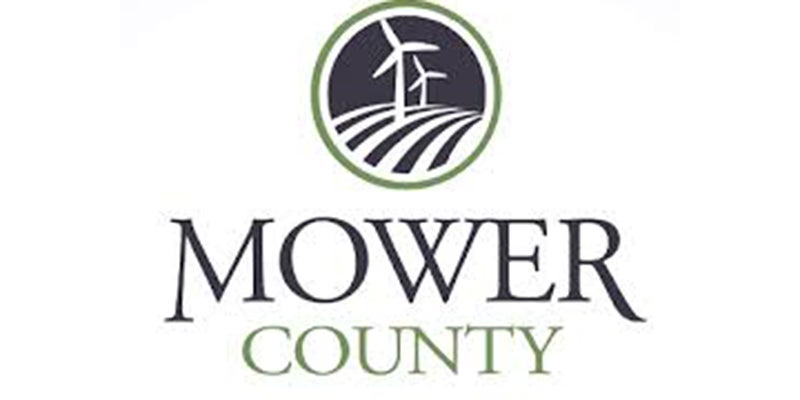Dayton, Democrats reach deal on budget
Published 11:07 am Monday, May 13, 2013
By Baird Helgeson and Jennifer Brooks, Minneapolis Star Tribune
ST. PAUL — DFL Gov. Mark Dayton and Democratic legislative leaders reached a budget agreement Sunday that calls for $2 billion in new taxes and boosts spending for schools and property tax relief.
The Democrats are relying on a tobacco tax hike and the governor’s long-sought income tax increase on high earners to pay for the new spending. The budget outline scraps a proposed sales tax on clothing, but lawmakers continue to consider resurrecting at least part of a heavily criticized plan to tax businesses services.
“It’s a budget that is going to work for Minnesota. It’s going to put Minnesota to work,” Dayton said Sunday afternoon. “It’s going to fulfill our promises to invest in education and infrastructure. We’re going to see a better Minnesota as a result of this budget.”
Legislators now have the framework of a budget deal to guide the closing week of the legislative session and knock down a projected $627 million budget deficit. The plan includes a temporary income tax surcharge on the state’s wealthiest residents to repay the $860 million owed to public schools. The budget outline also boosts education spending by $725 million and gives Minnesotans $400 million in property tax breaks.
The surprise Mother’s Day budget agreement angered Republicans who had little say in the plan.
“Disappointing news out of the DFL that their gift for every hardworking mother in the state of Minnesota is going to be more than a $2 billion tax increase,” said House Minority Leader Kurt Daudt, R-Crown. “This is bad news today for Minnesota’s economy.”
This is the first budget outline since DFLers took control of the Legislature this year, giving them almost complete control to direct state spending and taxing as they see fit. The state has clawed its way out of the worst recession in decades, a downturn that forced state leaders to cut spending by more than $2 billion in recent years.
Breaking the
deficit cycle
Dayton and Democratic leaders say now is the time to restructure the state budget for the long haul and break the cycle of back-to-back budget deficits.
Senate leaders continue pushing for sales tax reform and want to expand the tax to include some business services, like accounting and legal fees. Dayton included the business taxes as part of an earlier budget plan, but he hastily withdrew the blueprint amid intense criticism from business groups and leaders of the state’s largest companies.
“What I said from the very beginning was, it’s very bold and we’re going to take a look at the whole menu of business-to-business services,” said Senate Majority Leader Tom Bakk, DFL-Cook, a longtime advocate for retooling the sales tax. “There are likely things in there that are worth doing that I don’t believe would have any impact on Minnesota’s economy.”
More details promised
Bakk said they will have more details in coming days on what business services would be subject to taxation. He insisted that any new revenue collected would go directly toward economic development and reducing other taxes.
Some additional tax hikes could still be in the works, such as an increase in alcohol tax. A proposed salary increase for legislators, the governor and top commissioners remains in play also.
“It’s just simply more overtaxing, overspending, overreaching,” said Senate Minority Leader David Hann, R-Eden Prairie.
The governor and DFL legislators are also trying to reach an agreement on about $800 million in state-backed construction projects, including a massive restoration of the State Capitol and smaller projects around the state. State borrowing requires a larger majority of votes to pass and so far ≠Republicans said they are not inclined to offer up the necessary votes. Hann said there is “little appetite” among Senate Republicans to boost state borrowing.
Democrats are seeking $50 million in reductions to Health and Human Services, a much smaller trim than earlier proposals. The cuts represent a tiny fraction of the agency’s multibillion-dollar budget.
Other budget winners
The budget proposal also calls for modest new spending on the environment, public safety, job creation and housing.
Paying back the so-called school shift has emerged as one of the thorniest issues of the DFL negotiations.
Taxpayers already have repaid a giant share of the debt, which the state borrowed over several years to balance its budget. State law requires that any surplus revenue immediately go to repay schools. But House leaders campaigned on the promise that they would pay it back sooner.
The temporary income tax surcharge on those making more than $500,000 would certainly speed the repayment, but it would also rocket the state’s income tax rate to among the highest in the nation.
Dayton and Bakk grudgingly agreed to the surcharge despite having complained that having a sky-high income tax rate — even temporarily — could be a blow to job-creation efforts.
But House Speaker Paul Thissen, DFL-Minneapolis, displayed rock-ribbed commitment to the plan.
The three leaders remain divided on a proposed nickel-a-gallon gas tax hike. Dayton has said the increase would generate far too little money and way too much blowback from angry consumers.
The Senate initially stripped it from their proposal, but one senator successfully kept it alive with a last-ditch political maneuver on the Senate floor.
“That is one piece of this discussion that has not been resolved,” said Thissen, who has not advocated for the gas tax hike.
Said Dayton: “The Senate keeps putting it on the table, I keep putting it off.”




